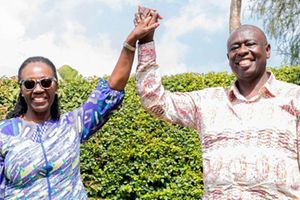Post-mortem reveals how ‘Molo President’ Richard Otieno died
By John Njoroge
Molo human rights activist Richard Otieno, alias ‘Molo President’, died of severe head injuries inflicted by a sharp object, government chief pathologist Dr Johansen Oduor has confirmed.
Speaking after conducting a post-mortem at the Kericho County Level Five Hospital mortuary on Friday, Dr Oduor stated that the weapon used multiple times on Otieno's head could have been a panga or an axe.
"There were several severe injuries, including multiple slash wounds on the back of the head, which caused a skull fracture and excessive bleeding in the brain. There were also slash wounds on the front of the skull, though they did not result in fractures," Dr Oduor said, adding that bruises on the face and arms suggested Otieno attempted to defend himself.
Dr Oduor confirmed that Otieno died from the severe head injuries caused by the sharp object.
"We have collected samples for further analysis. When two people engage in a violent altercation, they often exchange DNA material. The samples collected will help identify the perpetrators. We also collected fingernail samples for DNA analysis to determine if the deceased was possibly subdued by any substances before meeting his attackers," he explained.
Dr Oduor noted that the body was well preserved.
Independent pathologist Dr Titus Ngulungu was also present to oversee and verify the post-mortem findings.
Family lawyer Ms Rosalinda Wamaitha, who was present during the autopsy, said she was satisfied with the process carried out by the pathologists and the Directorate of Criminal Investigations (DCI).
"We are here to fulfil our mandate of protecting and promoting human rights. The right to life is the most fundamental right of all people. We have confirmed the autopsy findings and concur with the chief pathologist's report. This process is a crucial step in the investigation," said Kamanda Mucheke, Head of Complaints and Investigations at the Kenya National Commission on Human Rights.
Relatives of the deceased and a team from the Red Cross were also present during the post-mortem examination.


